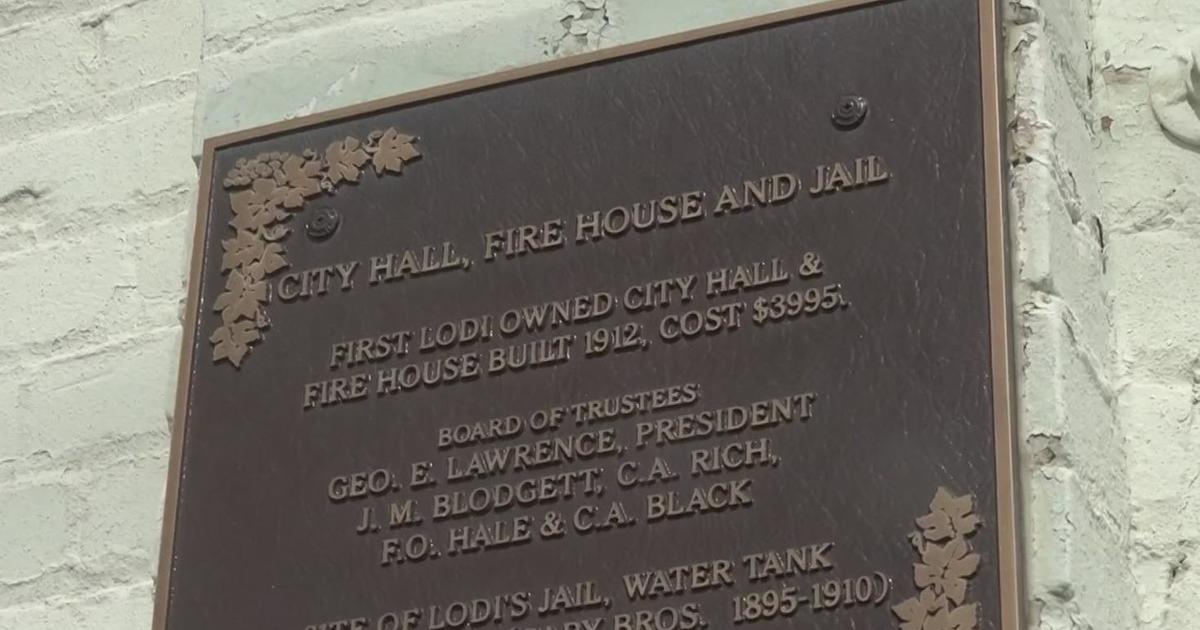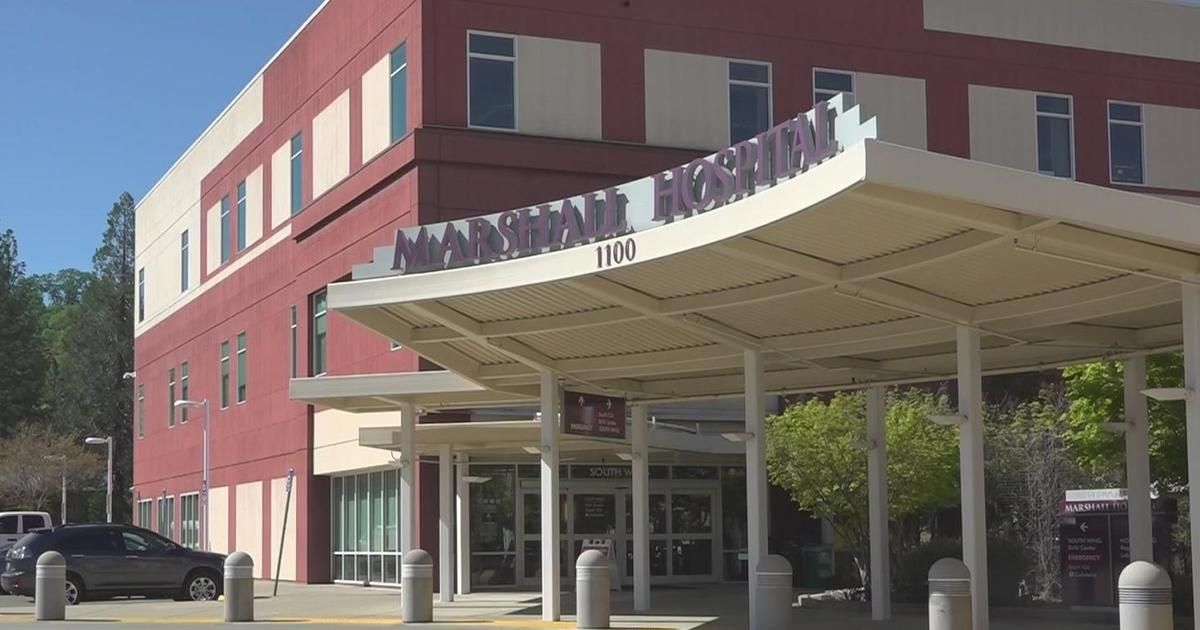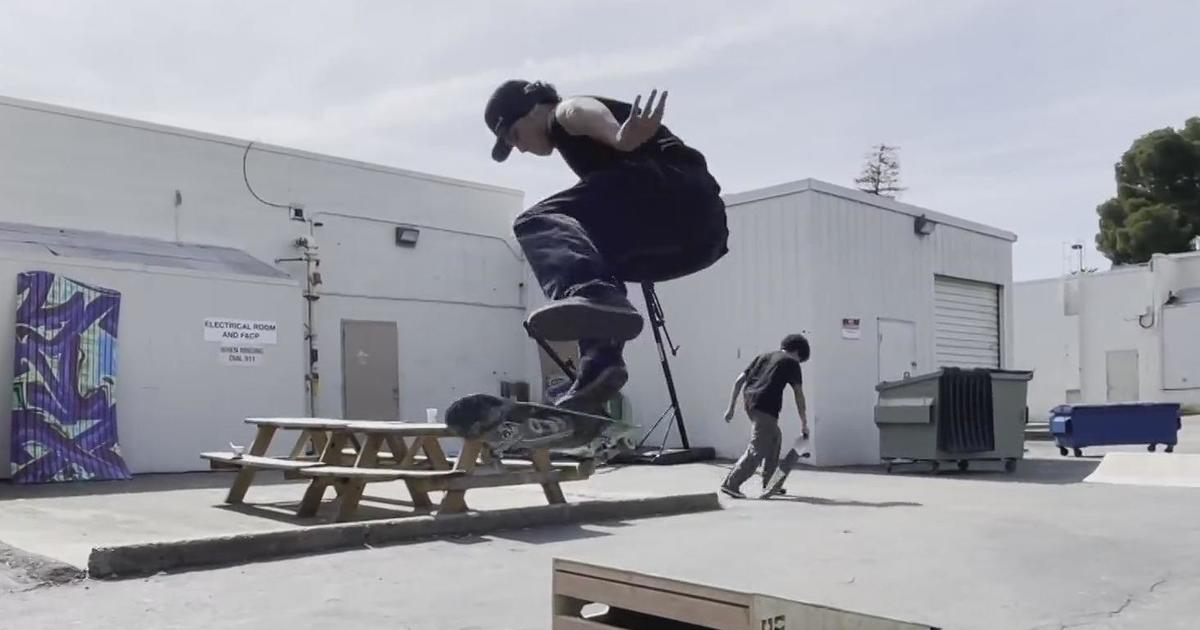Sister Camille D'Arienzo: Build Bridges Instead Of Bombs
Camille D'Arienzo, R.S.M., a member of the Mid-Atlantic Community of the Sisters of Mercy of the Americas, is a past president of the Leadership Conference of Women Religious. She has delivered commentaries on CBS New York's 1010 WINS Radio for more than four decades.
With the 10th anniversary of the suicide bombing of the Twin Towers remembrances of that life-changing event seem inescapable. Adults, especially those who worked in the city or know people who died there, recall the anguish.
My niece's husband Jerry can't forget the scene he witnessed as he exited from the subway into a smog-like atmosphere. He looked up to see people holding hands as they leapt to their death to escape the flames. Two of my nephews, Michael and Ronnie, as New York City policemen, were among first responders. Their memories are terrible.
CBS New York Audio: Hear Sister Camille Tell Her Story
Thousands of stories of anguish and loss contribute to the way we now see ourselves. We, unlike citizens of other continents, had never suffered an enemy attack. We didn't know how to respond.
Although we're a nation that values "thinking outside the box," we're not good at doing it. So it was no surprise that our first response was to return violence with violence.
While the buildings were still smoldering and our world was severely shaken, President Bush and his administration launched a search and destroy mission. They were determined to find Osama Bin Laden and to take revenge on those responsible for the deaths of the people killed here. Almost three thousand people in Manhattan – including 343 firefighters, 60 police officers and 8 medical technicians and paramedics. More in Washington, D.C. Then there were the brave souls who took over the plane meant to be a weapon and disabled it, losing their lives in a Pennsylvania field.
Our rage and fear was widespread. In many quarters it still is. And then there was this thing called national pride to uphold.
Whatever the intent, this strategy has cost us the lives of more than 6,000 American soldiers – twice as many as victims of the initial attack. Many who survived have returned to us broken in mind and body. The suicides among them have equaled or excelled those of returning Vietnam veterans.
And decency doesn't allow us to ignore the fact that this decade of warfare has claimed the lives of thousands of innocent Iraqi and Afghan citizens.
Then there's the financial cost of this conflict. Surely it continues to contribute to the collapse of our economy.
Might there have been a better way?
We're not conditioned to solve problems peacefully. Although we recognize the commandment, "Thou shalt not kill," we approve many exceptions -- from womb to tomb. From abortion to the death penalty, we make excuses to justify our choices.
But every once in awhile individuals demonstrate by their very different choices that recovery can take alternative forms.
We had proof of that when on Oct. 7, 2006, the Associated Press reported out of Georgetown, Pa.:
"Dozens of Amish neighbors came out on Saturday to mourn the quiet milkman who killed five of their young girls and wounded five more in a brief, unfathomable rampage."
Reports of the actions of a local Amish man with children of his own stunned the quiet, peace-loving religious community. Charging into the West Nickel Mines Amish School, 32 year old Charles Roberts released fifteen boys and four adults before shackling and shooting ten girls, aged seven to thirteen. This shocking crime, perpetrated by a local husband and father, rocked that neighborhood and the nation. Even more startling than the massacre was the Amish response to that violence – especially in a world that seeks instant retaliation. Benedictine Sister Joan Chittister reflected in her column in The National Catholic Reporter:
"What kind of people are these? It was not the murders, not the violence that shocked us; it was the forgiveness that followed it for which we were not prepared. It was the lack of recrimination, the dearth of vindictiveness that left us amazed."
She's right. The Amish Christian culture is predicated on the acceptance of Jesus' instruction to extend forgiveness to those who inflict harm. They believe to do so ensures citizenship in heaven. Two aspects of forgiveness in this case were its immediacy of expression and the victims' families' outreach to the wife and children of the murderer.
The Amish people, out of sync with modernity and contemporary culture, set an example outlandish to nations who equate retaliation with self protection.
Sister Joan Chittister wondered what the world would be like today if after the attacks that felled the Twin Towers on September, 11, 2001, we had not invaded Afghanistan and Iraq and, instead, had gone to every Muslim country on earth and said: "Don't be afraid. We won't hurt you. We know that this is coming from only a fringe of society and we ask your help in saving others from this same kind of violence."
Laughable, ridiculous! some would respond. Perhaps including those who lost loved ones in that tragedy. After all, almost 3,000 perished in the attack on the Twin Towers.
But we have to wonder if it's less foolish to have deployed thousands of American troops on punitive raids that brought death to countless innocent civilians, returned over 6,000 U.S. servicemen and women in body bags and left thousands of others physically, emotionally and spiritually maimed, their families forever changed.
It's unlikely we'd have such obscene statistics to report if diplomacy had been substituted for preemptive strikes. We have as yet no accurate accounting of the residual damage to survivors who have lost loved ones and property in this conflict; however, history warns that its damage may find expression in future violence.
What can we expect of those Middle Eastern civilians who have lost loved ones and property?
In 1991, during the first Persian Gulf War, American soldiers rode into Baghdad, demonstrating good will, especially toward children. While handing our candy bars and other treats, one G.I. asked an 11-year-old what he planned to be when he grew up.
"A pilot," the boy replied.
The soldier encouraged his pursuit of such a profession, but a reporter standing by asked the child why he wanted to be a pilot.
"So I can fly to America and bomb the people who killed my family," came the chilling response. Ten years later when suicide bombers flew into the Twin Towers and the Pentagon, I wondered if that child, then 21, had become a pilot.
Is it possible that we will ever grasp the consequences of relentless retaliation? If so, perhaps when we mark the 20th anniversary of 9/11, our nation will resolve to build bridges instead of bombs.
President Abraham Lincoln left advice worth considering today. He said the best way to destroy our enemies is to befriend them.




